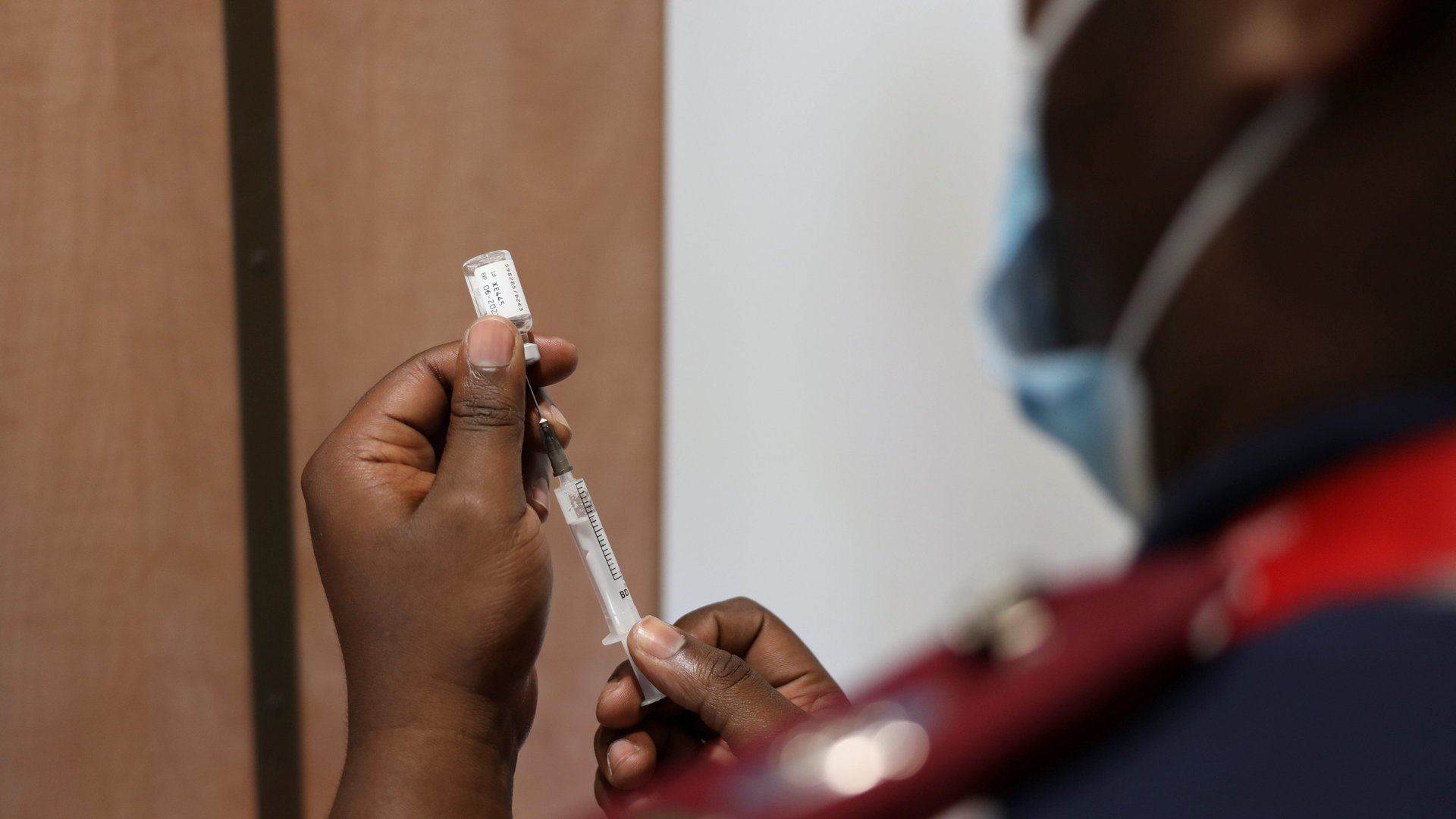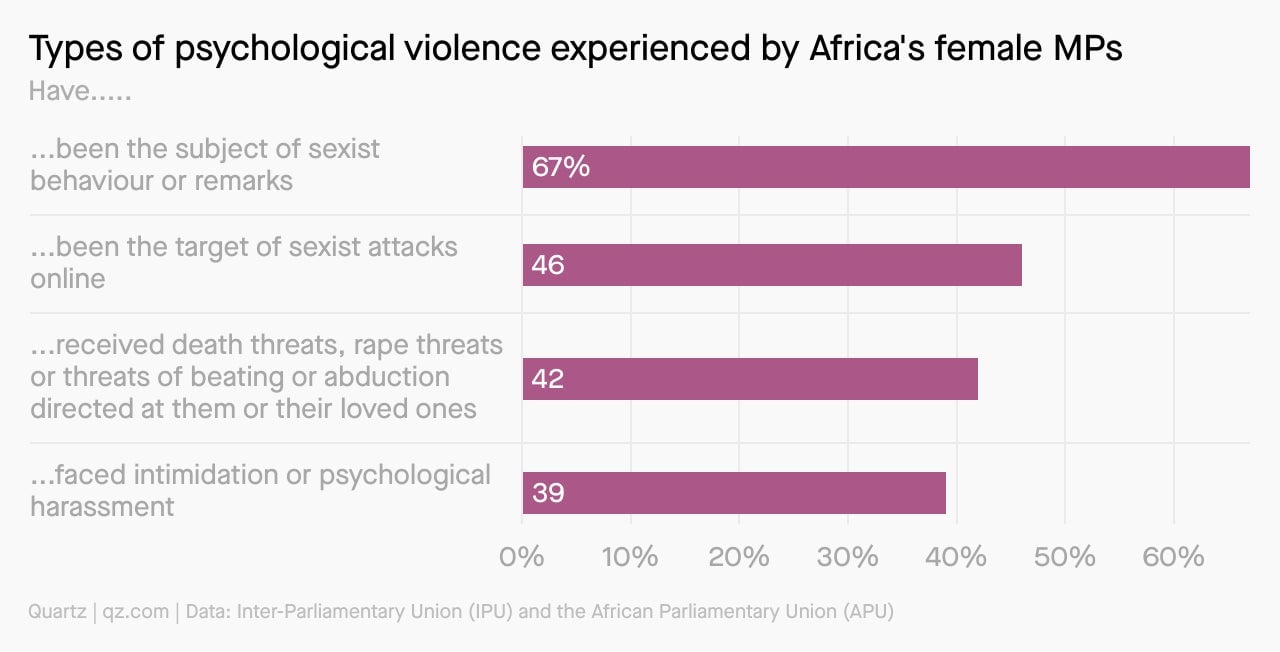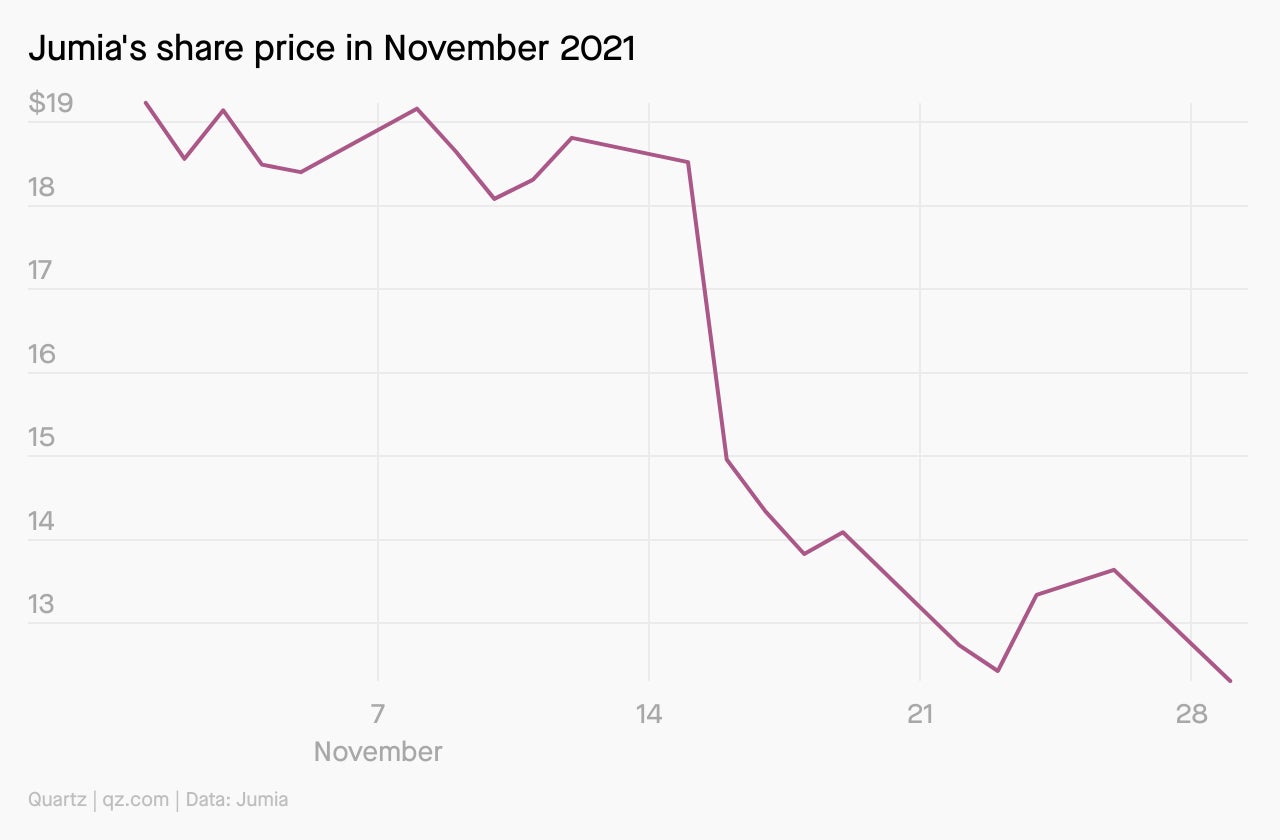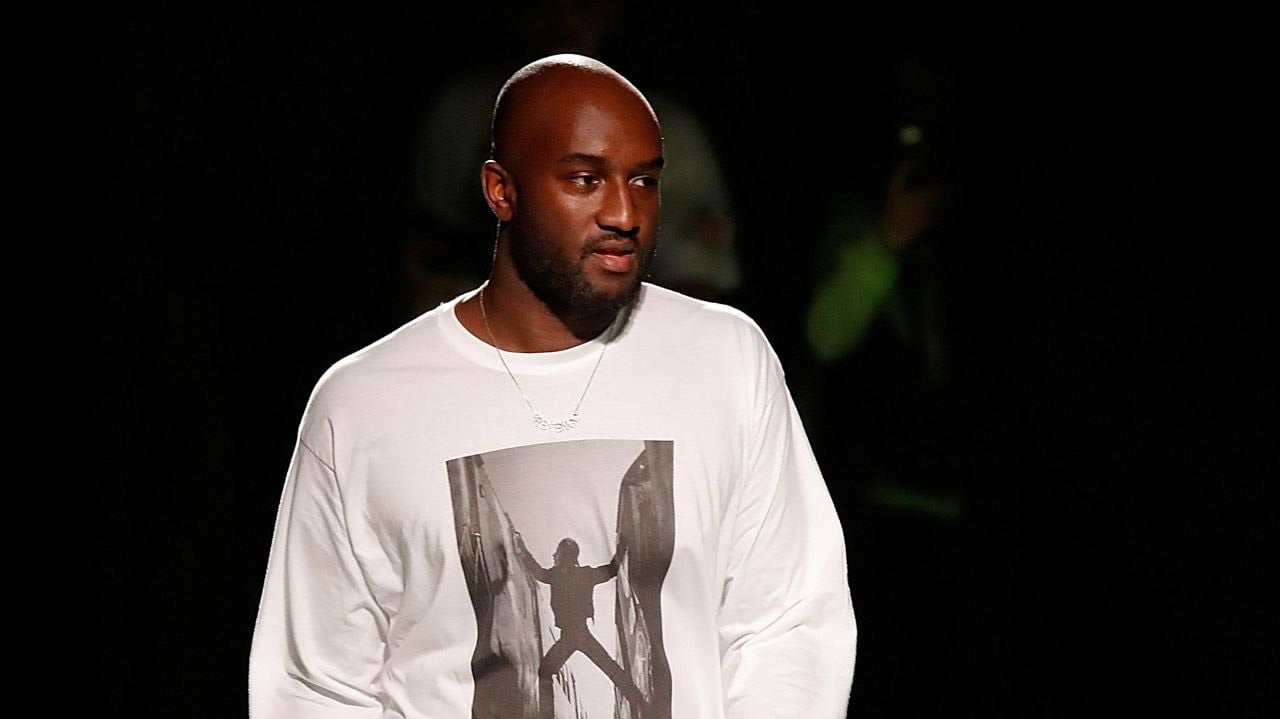Omicron’s inevitability, China’s investment pledges, Jumia’s downgrade
Hi Quartz Africa readers!


Hi Quartz Africa readers!
As the new, highly mutated omicron drives a fourth wave of infections in South Africa, countries around the world are wondering what the variant will mean for lives and economies. They need only look at what’s come before.
Scientists caution the world will always remain at risk of new, more mutated variants so long as rich countries continue to hoard vaccines. That should make vaccinating Africa a priority.
Yet almost a year after covid-19 vaccines became available, more than 80% of Africa’s population has not seen a single dose, according to Dr. Abdou Salam Gueye, emergency director with the World Health Organization’s (WHO) regional Africa office. “Only about 102 million Africans, or 7.5%, of the continent’s population is fully vaccinated,” Gueye says.
Rich countries were able to get ahead by securing almost twice as many covid-19 vaccines as Covax. The vaccine distribution network was intended to be the world’s mechanism to ensure poorer countries, most of them in Africa, weren’t left behind.
Africa’s low vaccination rate is also not an issue of vaccine hesitancy. Discomfort or resistance has played a role, and calls for creative solutions, as elsewhere in the world. But overall, most Africans want a covid-19 vaccine, according to a July study published in the journal Nature. The research found covid-19 vaccine acceptance was much higher in the low- and middle-income nations under review than in the US (65%) or Russia (28%). The study included countries such as Rwanda, Burkina Faso, and Mozambique.
Thankfully, Africa’s vaccine supplies have increased in the past three months, Gueye says. Early next week, the African Union is expected to release a plan to boost local vaccine production and, eventually, reduce Africa’s dependence on foreign nations for immunizations.
“[Omicron] was inevitable,” Dr. Ayoade Olatunbosun-Alakija, the co-chair of the AU’s Africa Vaccine Delivery Alliance, told the BBC recently. Hopefully, the next variant won’t be. —Laura Lopez Gonzalez, Quartz Africa contributor
Stories this week
Omicron shakes up the world and the continent. With the new variant having been detected in at least 23 countries, Quartz reporters have tracked a world on edge. Carlos Mureithi broke down Africa’s response to the new strain and how the ad hoc manner of mass vaccine donations has failed the continent. Camille Squires explained why South Africa is unlikely to implement lockdowns.
Manavi Kapur questioned the futility of travel bans, as Alexander Onukwue detailed plans by New York’s new mayor to visit Ghana for a spiritual trip, news that was swiftly followed by the discovery of omicron in Ghana and Nigeria. Courtney Vinopal reported that covid-19 would cost 0.5% of G20 spending on the crisis, while Annalisa Merelli warned about the danger of treating the virus like an emergency.
Follow all of the current and future reporting from our global newsroom on the variant.
Beijing tightens the purse strings. At the recently concluded Forum on China-Africa Cooperation (Focac) meetings in Dakar, Senegal, China broke with tradition to announce that it would be reducing its investment pledges to Africa from $60 billion to $40 billion. Fatimata Racine Wane reports on the reasons behind this dip.
Malawi wants Mike Tyson to be its cannabis ambassador. One of the continent’s top tobacco producers is pivoting to cannabis—potentially a $7.1 billion industry in Africa—having legalized its growth and processing for medicinal and industrial purposes last year. Rabson Kondowe explains why the country wants Mike Tyson to be the ambassador for “Malawi gold.”
Zimbabwe’s novel approach to taxing smartphones. Zimbabwe already levies a tax on imports of smartphones. Now it plans to introduce a $50 tax on newly imported cell phone devices. Tawanda Karombo looks into the curious reason why the government is asking mobile operators to collect this levy on its behalf.
Toxic masculinity runs rampant in the African parliament. Maxine Betteridge-Moes writes about a new study that reveals much of the physical and psychological violence female politicians encounter comes from their male colleagues.

Charting Jumia’s prospects
Since releasing its third-quarter financial report two weeks ago, African online retailer Jumia has seen its share price slide downwards, the latest dip coinciding with a leading US investment bank’s downgrade of the stock.
Luke Holbrook, a Morgan Stanley equity research analyst, changed the bank’s recommendation for Jumia’s stock from neutral to underweight, according to The Motley Fool. Alexander Onukwe describes how the new rating reflects declining investor appetite for the Amazon of Africa in 2021.

Dealmaker
Gozem, an app that offers logistics and financial services in francophone Africa, raised $5 million from Asia Africa Investment & Consulting (AAIC) and other firms. Gozem is building a super app and so far has users in Togo, Benin, Cameroon, and Gabon, but plans to add more services and locations.
Still on super apps, Algerian startup Yassir raised $30 million in a series A round from a host of venture capital firms—including WndrCo, DN Capital, and Endeavor Catalyst—and angel investors from companies like Uber, Spotify, and Upwork, among others. Founded in 2017, Yassir’s app is used to hail rides and deliver goods in Algeria. The startup claims to have over 3 million users.
OfferZen, a South African marketplace for tech talent, raised $5 million to continue expanding its service to Europe. The investment in the six-year-old company was led by Base Capital, a South African firm. Already present in the Netherlands, the company says it connects developers to companies like Luno, ABSA, MMI Holdings, Takealot, WeTransfer, Adyen, and Catawiki.
Remembering Virgil Abloh

RIP to the master of collaborations. In the short span of 41 years, Virgil Abloh managed to pack in high-profile projects worth several lifetimes. In addition to running his own fashion label and leading Louis Vuitton’s menswear atelier, the American-Ghanaian designer who died on Nov. 28, remained relentlessly in the spotlight through collaborations with brands like IKEA, Nike, Levi’s, Vitra, and Mercedes Benz. As a DJ, he had an acuity for mash-ups and often remixed traditional beats with cutting edge; east with west; white with black; and pop culture with fine art.
Why did Abloh love collaborating? “Collaboration invites the new generation into the conversation,” he said. “My work is meant to open doors for them.”
Click here for a list of brands and personalities Abloh collaborated with during his career.
Quartz Gems
After spending decades in relative obscurity, Japanese whisky is finally a global hit. Can you identify which of these statements is false?
- A buyer paid $435,273 for a bottle of whisky at a Sotheby’s auction last year
- The cost of Japanese whisky keeps rising
- All Japanese whisky comes from Japan
Find the answer in the latest episode of the Quartz Obsession podcast.
🥃 Drink up all this season’s episodes on Apple Podcasts | Spotify | Google | Stitcher
Sponsored by American Express
Not a member yet? Sign up now for a 7-day free membership trial and be part of Quartz’s thriving community of sharp, thoughtful readers.
Other things we liked
A long journey home. A cache of 900 artifacts, discovered by Homeland Security agents in the US in 2009, has been returned to Mali. Zachary Small reports for the New York Times on why the process took so long, and the challenges facing the country in protecting its cultural heritage in the face of increased looting.
An attempt to stop oil exploration. For the Guardian, Jillian Ambrose writes that campaigners in South Africa are trying to stop plans by Shell to explore for oil in whale breeding grounds in the eastern part of the country.
Leaks allege top-level Congolese corruption. For Bloomberg, Michael J. Kavanagh and William Clowes examine questionable transfers of millions of dollars between a China-based company and associates of Joseph Kabila, the Democratic Republic of Congo’s former president, targeting the country’s mining industry.
Wizkid almost ruined his stellar night. The Afrobeats king had a glorious concert at a sold-out O2 arena in London in the company of Nigerian and Black British artists. But Jason Okundaye describes for the Guardian how Wizkid risked it a bit by bringing a controversial guest on stage.
ICYMI
How to work social impact into your career. A discussion led by Quartz at Work senior reporter Cassie Werber, and featuring Quartz Africa Innovator Jihan Abass, among other esteemed panelists, unpacks how your work could spur positive social change. (Dec. 9 at 4pm GMT)
An economist speaks about climate change. Nobel laureate Esther Duflo, a professor of economics at MIT, will deliver the 2021 Kofi Annan Eminent Speakers’ Lecture, in which she will talk about climate change. (Dec. 13)
Keep an eye on

The Gambia votes in the former president’s shadow. Gambians took to the polls on Dec. 4 in an election where the influence of exiled former president Yahya Jammeh loomed large. In the first election in 27 years that won’t feature Jammeh, current president Adama Barrow faced off against five other candidates.
Jammeh, whom Barrow defeated in the 2016 presidential election, had been trying to sway the vote. At a pre-election rally for opposition candidate Mamah Kandeh last month, Jammeh spoke in an audio message from exile in Equatorial Guinea, urging Gambians to vote for the opposition candidate. President Barrow threatened Kandeh with legal action for playing the audio.
Demonstrations over a deal in Sudan. Sudanese are protesting October’s coup and an agreement between prime minister Abdalla Hamdok and the military that led to his reinstatement into office. On Nov. 30, thousands demonstrated in the country’s capital, Khartoum, and marched on the presidential palace. Pressuring the military-civilian authority, they accused Hamdok of betrayal and criticized the agreement as “whitewashing.”
🎵 This brief was produced while listening to “66” by Felo Le Tee and Myztro (South Africa)
Our best wishes for a productive and ideas-filled week ahead. Please send any news, comments, suggestions, ideas, interest-free yuan, and Louis Vuitton menswear to [email protected]. You can follow us on Twitter at @qzafrica for updates throughout the day.
If you received this email from a friend or colleague, you can sign up here to receive the Quartz Africa Weekly Brief in your inbox every week. You can also follow Quartz Africa on Facebook.